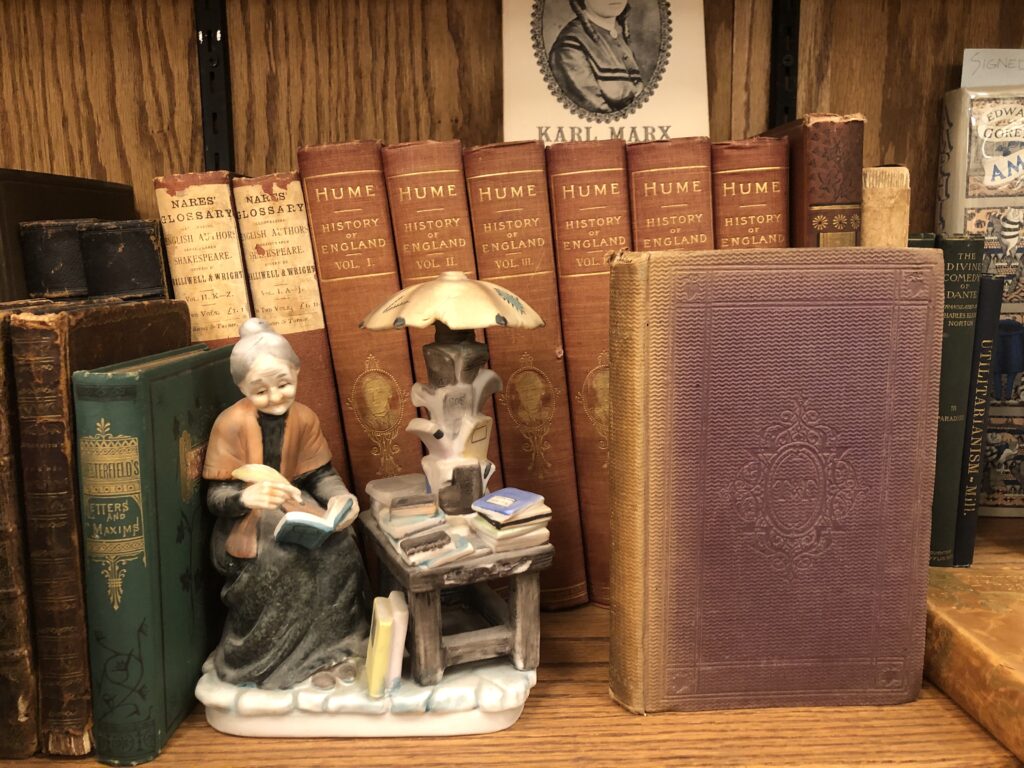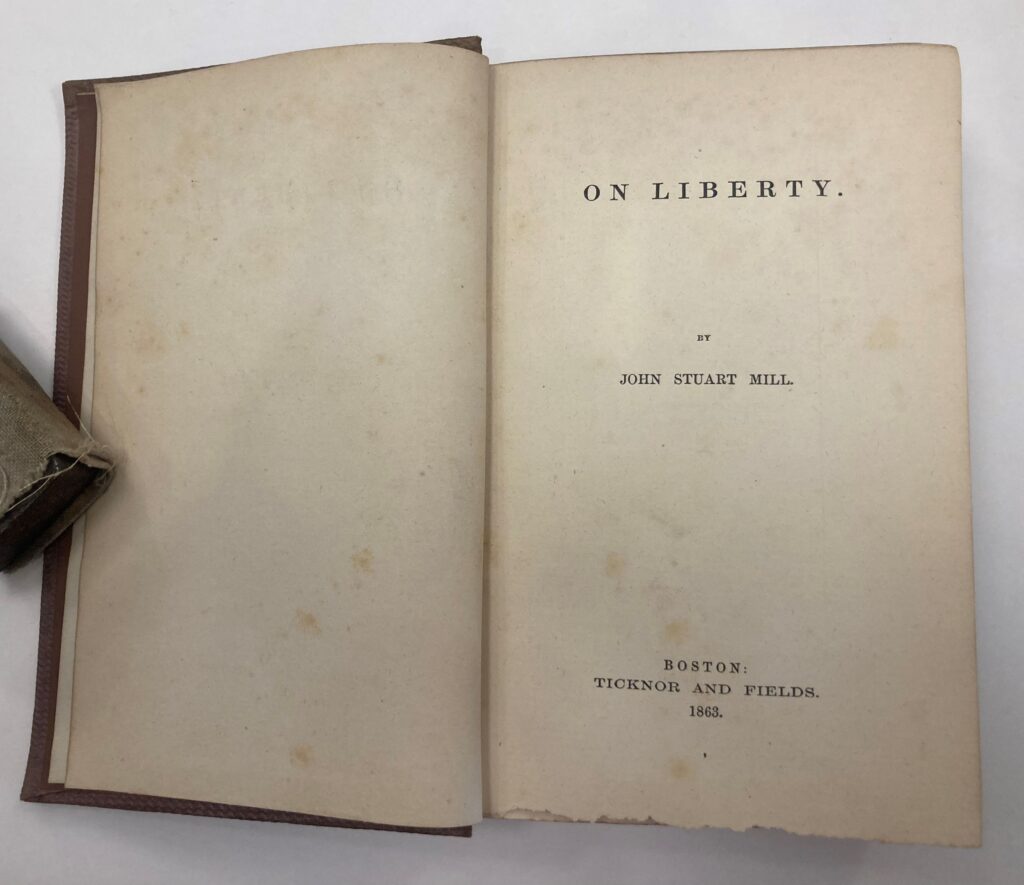by John Stuart Mill
First American Edition | Ticknor and Fields | 1863


This edition of John Stuart Mill’s foundational essay, On Liberty, holds historical significance as both a physical object and a record of social philosophy that has shaped political thought for over one hundred and fifty years. On Liberty was first conceived of as a short essay, then revised and expanded into a book-length treatise by Mill and his wife, Harriet Taylor Mill, which was published in England in 1859. Four years later, the text came to America, published in Boston by Ticknor and Fields. At the Dawn Treader, you’ll find one of these first editions of a book that, since it’s initial publication, has never gone out of print.
The principles Mill outlines in On Liberty center around the rights of the individual, especially in relation to systems of authority. At a simplified level, Mill argues that individual sovereignty is the backbone of society, and intervention by any government or system of power should only occur to prevent harm to others. He applies this principle to patterns he sees emerging in modern democracies. Among other concerns, Mill warns against the “tyranny of the majority,” outlining the dangers of democratic systems’ reliance on upholding whatever rules are most popular, when what is popular could also be unjust or wrong.
Mill’s philosophy was and is received well and widely by many, and heavily critiqued by others, but there is no doubt that the majority of the world has in some way been touched by the aftereffects of the ideas he outlines in On Liberty. The text was critical in shaping British liberalism, especially England’s Liberal Democratic Party. Libertarianism in the U.S. also draws heavily from it’s suggested precepts. Even as these systems have evolved away from the exact specifications of Mill’s ideas, and even as critics have noted his self-contradictions on subjects such as utilitarianism, On Liberty has maintained a presence in philosophical discourse to this day, cementing its place in history.

